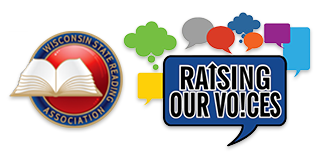|
December | January | February | March | April | May | June
June Emerging Voices
WSRA’s JuneEmerging Voices Academy will be presented in both live and pre-recorded sessions. This month’s professional learning will focus on key literacy skills in the development of our readers and writers. Through inquiry-based, student centered, and joyful instruction, we’ll give voice to student ideas, and empower them to be active participants in their learning as readers and writers. Leading our Emerging Voices Academy will be Pamela Koutrakos, Clare Landrigan and Heidi Mesmer. Joining them will be Mona Zignego and Dana Hagerman. The live sessions will be recorded and accessible for ten days following the live presentation. The pre-recorded sessions will be available to the June Academy registrants and to WSRA members as a member benefit.
|
Pamela Koutrakos
- 9:00 am CST June 9 Word Study That Sticks: Jumpstarting Engagement, Joy, and Success in Word Learning When it comes to words and grammar, knowledge just isn’t enough. This leaves teachers wondering, How might I support students in applying their knowledge all across the day? It’s time to rethink how we could authentically infuse more “word awareness” throughout the day. In this session, we will connect the dots, while also protecting the integrity and focus on content area learning. Power practices for fostering a habit of transfer will be discussed, demonstrated and tried. Consistent, competent, and confident transfer is possible! Intended Audience: Grade K-8 teachers, coaches, administrators, and support staff.
- 9:00 am CST June 23 Teaching for Transfer: Power Practices That Make Word & Language Learning Stick When it comes to words and grammar, knowledge just isn’t enough. This leaves teachers wondering, How might I support students in applying their knowledge all across the day? It’s time to rethink how we could authentically infuse more “word awareness” throughout the day. In this session, we will connect the dots, while also protecting the integrity and focus on content area learning. Power practices for fostering a habit of transfer will be discussed, demonstrated and tried. Consistent, competent, and confident transfer is possible! Intended Audience: Grade K-8 teachers, coaches, administrators, and support staff
|
|
Heidi Mesmer
- 10:45 am CST June 9 and repeated on June 23 Letter Lessons and First Words: New Ideas and Extensions The big messages about phonics instruction have been well-established---Make sure that students get solid phonics instruction (Lonigan & Shanahan 2009; Mesmer & Griffith, 2005; Snow, Burns, and Griffin, 1998). Unfortunately, the more nuanced and sophisticated messages about phonics instruction have not reached all classrooms and all teachers. This session will focus on teaching techniques that can be used in any phonics curriculum. For example, in primary classrooms children read orally to their teachers, but what do teachers say and do when they don’t know a word or make a mistake? Similarly, we want children to sound out words that they know, but how does a teacher get a child from pronouncing individual sounds /c/ /a/ /t/ to blending the word together? Likewise, teachers know that they must use explicit language, words that directly tell children what sound a letter group makes (e.g. sh = /sh/) but when is it important let students figure things out? Finally, we know that Letter-of-the-Week is not a good practice but what does a kindergarten teacher do to bring everyone up to speed with the alphabet?
|
|
Clare Landrigan
- 12:45 pm CST June 9 Changing Up Read Aloud to Foster Agency, Identity, and Interpretation Young readers have big ideas and love to talk about them. The sooner we get our readers thinking, talking, listening, comprehending, and debating during read-aloud, the sooner they will become engaged readers. Let’s talk about how to implement systems that get us out of their way and create space for authentic response. Formative assessment, instruction, community, and fun all combined with meaningful interaction with text.
- 12:45 pm CST June 23 Using Mentor Texts to Scaffold Writers The right book at the right time can make all of the difference in our writing instruction. Mentor texts serve as an additional teacher in the room when we model how to use them to lift the quality of writing and support new learning. Join us as we share ways to use mentor texts with students to scaffold learning how to write different genres; apply new instructional standards; and connect curriculum from year to year.
|
| Dana Hagerman and Mona Zignego Pre-recorded session Journey to Literacy Historically speaking, reading is a fairly modern invention that consists of many complex processes which ultimately lead to comprehension. Learn about the foundations of our reading and writing system along with the simple view of reading model. The session will touch on some areas of reading that students can struggle with, such as dyslexia. |
| Mona Zignego Pre-recorded session Make, Play, and Connect the Dots This hands-on professional development seminar for teachers who are already working in the field in grades K-2 will help connect the dots with games, strategies, and other engaging activities designed to improve literacy skill acquisition for students alongside the existing curriculum. |
|

